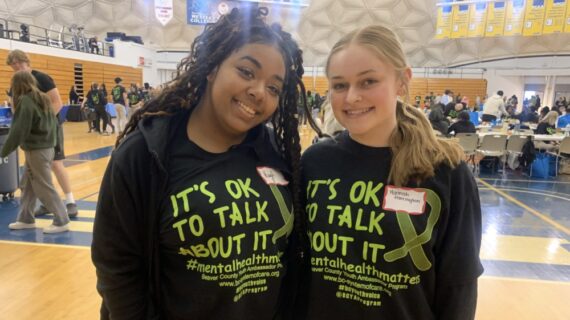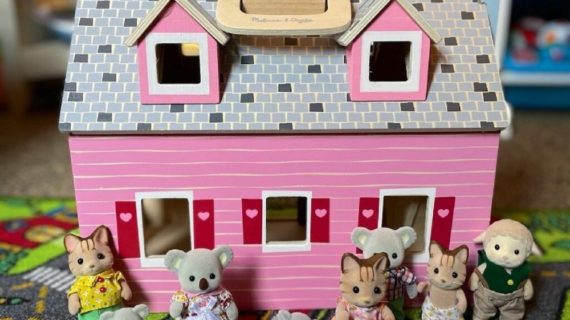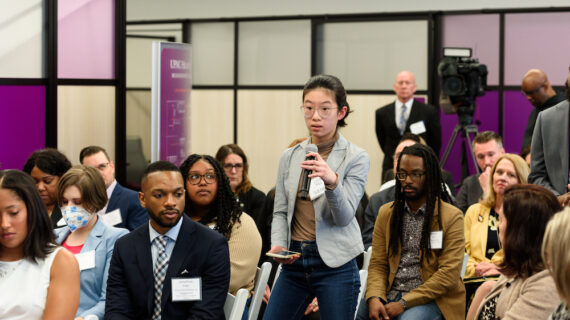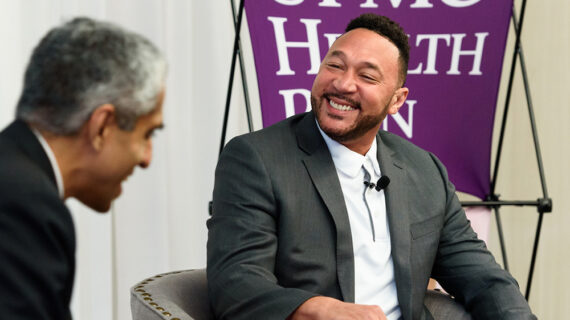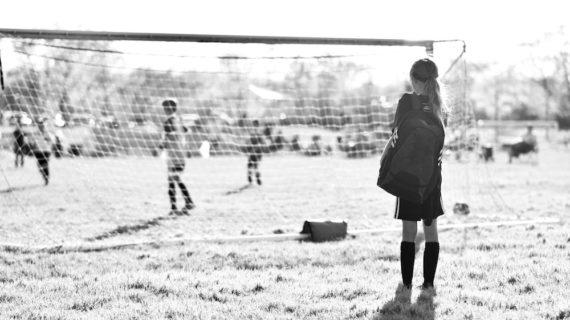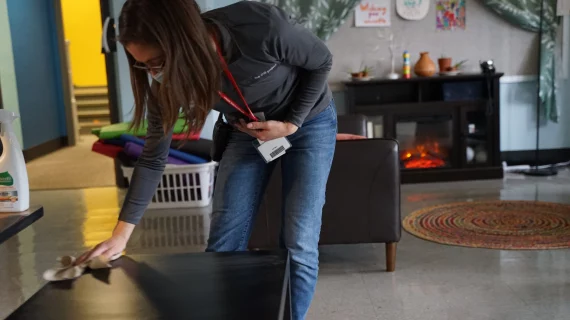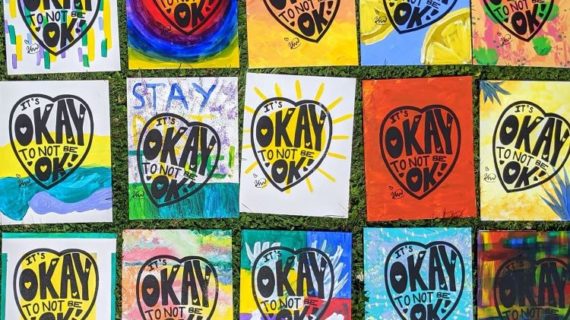
Powerful mental health advice (and grant funding) from Pittsburgh Marathon competitor Greg Nance
Photo above by jurien huggins via Unsplash.
Ultramarathoner Greg Nance has come to Pittsburgh this week with an exciting challenge ahead: He’ll be competing in this weekend’s marathon. But his goals while visiting our city are bigger than just the race.
As a teen, Nance struggled with depression and sought relief in substance use. He credits a daily running ritual and the meaningful community he found through youth-led volunteer work with helping him get sober and change his life for the better. Today, he’s a speaker and advocate for mental health, inspiring and educating young people through the work and grant-giving of his Run Far Foundation.
So along with prepping for the DICK’S Sporting Goods Pittsburgh Marathon on Sunday, he’ll be sharing his expertise with local families during the 2023 Pittsburgh Health and Fitness Expo on May 5-6 at the David L. Lawrence Convention Center.
Recently, Nance took time out to talk with Kidsburgh about the mental health challenges so many families struggle with – and the fundamental ways we can help our kids to feel heard and be healthy.
“It’s easy to forget the challenges that we faced when we were kids and teens going through all this. It’s even harder right now, between social media, the pervasive mobile phones in every kid’s hand and then just how disruptive COVID was and the isolation many young people felt. So we are all still reeling from this,” Nance says. “It’s a truly global phenomenon.”
Here are excerpts from our conversation:
Listen to Understand
Kidsburgh: What are some ways parents can help support their kids’ mental wellbeing?
Nance: “Continuing to be present for the young people in your life, being an active listener, and when our younger ones are opening up and sharing. Trying to listen without judgment and listen to hear – listen to understand. Often, we want to give advice or we want to share some guidance or wisdom that’s hard-earned from our side. There can be a place for that. So often, the first step is just helping a young person feel heard – that they matter. And so that’s the first element: listen to really understand and be present.”
Kidsburgh: It’s not always easy to follow, but that’s such good advice.
Nance: “I want to salute parents, guardians, teachers, coaches, faith leaders – we care. I tip my cap, because that care is so important. And sometimes that care can actually lead us a little astray from what we’re really aiming to accomplish. Because really, we want to be there. We want to show we care. And a lot of the time that’s providing space for a young person to level with us and to share what’s on their mind and their heart. And so I know it’s hard, because we want to say, ‘Here’s the solution to your problem.’ But so often it’s just being an open ear and listening without judgment and that can be a remarkable shift in perspective and in relationship.”
Reset by Breathing
Kidsburgh: What kinds of good mental health behavior can parents model for their kids?
Nance: “The simplest tactic that I share – with both athletes and youth that I mentor, along with parents who are trying to build a bridge – is to focus on breathing. We have an amazing capacity as humans to overthink things and to stress ourselves out and to feel pressure. At the same time, we actually have a natural reset through our breath. By simply taking three deep breaths (inhale all the way, hold the breath, exhale), that is a signal to our nervous system: It’s okay. We can actually relax. We can find clarity in this moment. We can turn the volume down. And that is an enormously powerful tool that every one of us at all times has within our capacity. And so from kindergarteners I work with, all the way up to elite athletes trying to take their game to the next level, that is advice that I share. Because it’s so powerful and every one of us can be a better version of us when we’re breathing the right kind of way.”
Boosting Chemistry by Moving Our Bodies
Kidsburgh: What role does exercise play as we pursue good mental health?
Nance: “One of the big tips is to get moving. There’s something really powerful that happens in our brains when we’re moving. Every one of us has felt this at different times. The reason why we’re smiling when we’re moving is we’ve got dopamine, we’ve got serotonin and oxytocin just coursing through us. And these are all chemicals that make us feel happy. We literally change our chemistry when we’re moving. It’s even better when there’s a little bit of sunshine and when we’ve got friends and family around. And so, especially if we’re trying to build the habit, enlist a friend. And ‘account-a-buddy’ makes it way easier to get off the couch, to get rolling. And even if you don’t like running, come out and cheer on the runners in the Pittsburgh Marathon. You’re going to inspire someone, encourage someone in that way. And you just may find you feel encouraged and inspired, too.”
The energy along the marathon racecourse and at the finish line “is always palpable,” Nance says. “I cannot wait to see Pittsburgh come to life. It’s gonna be absolutely awesome.”
Nance’s other message for Pittsburgh’s families: His Run Far Foundation is offering community grants supporting youth mental health by encouraging youth volunteerism.
Young people ages 13 to 23 who have an idea for a project that boosts community mental health, builds a sense of community, and fosters healthy connections can apply for grants of $100, $200 or $500 to make their idea a reality.
“Whatever your idea is to make your school a little bit better place, or make your community a little bit better place, we would love to help you make it happen,” Nance says. (Get info and apply for funding right here – scroll down to read the FAQs.)
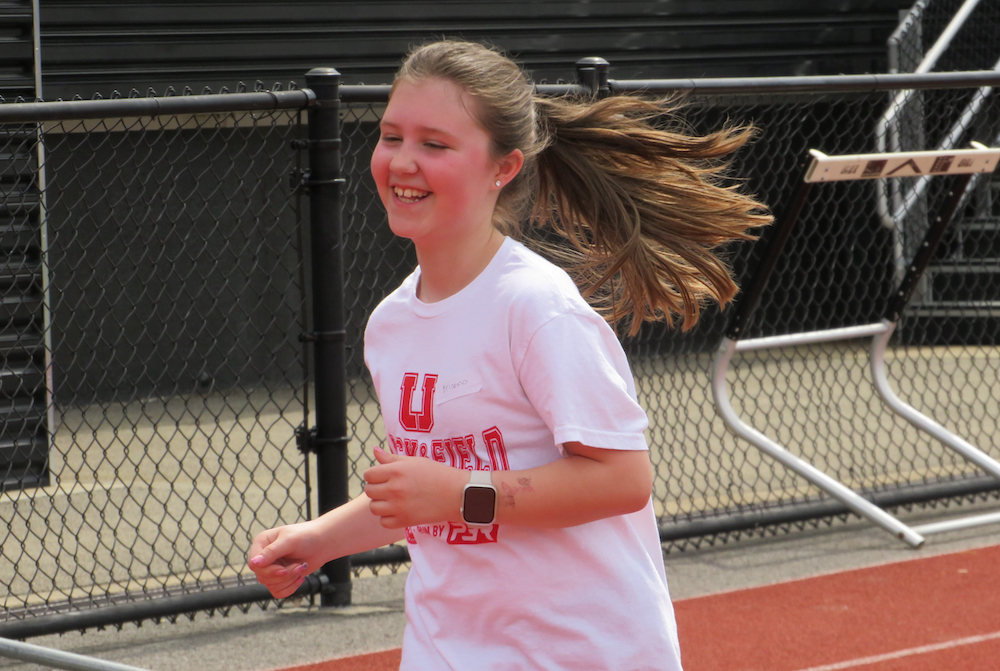
Earlier this spring, Run Far helped fund a community track camp organized by two Upper St. Clair high schoolers – Noor El Nokali and Emily Powell. El Nokali and Powell are members of Upper St. Clair’s track team, and they were seeking a way to use their running knowledge to help their community.
So on April 3 – 5 this year (during the school district’s spring break), they hosted elementary schoolers at a tuition-free half-day camp, offering track and field coaching along with plenty of opportunities to make new friends. Among other things, the grant funded t-shirts for the day campers.
“We were able to have a bunch of activities,” El Nokai says. “We had a bunch of our teammates from our track team come out to volunteer as the coaches. And it was just a really fun experience overall for everybody. And I think the kids were able to take something away from it.”
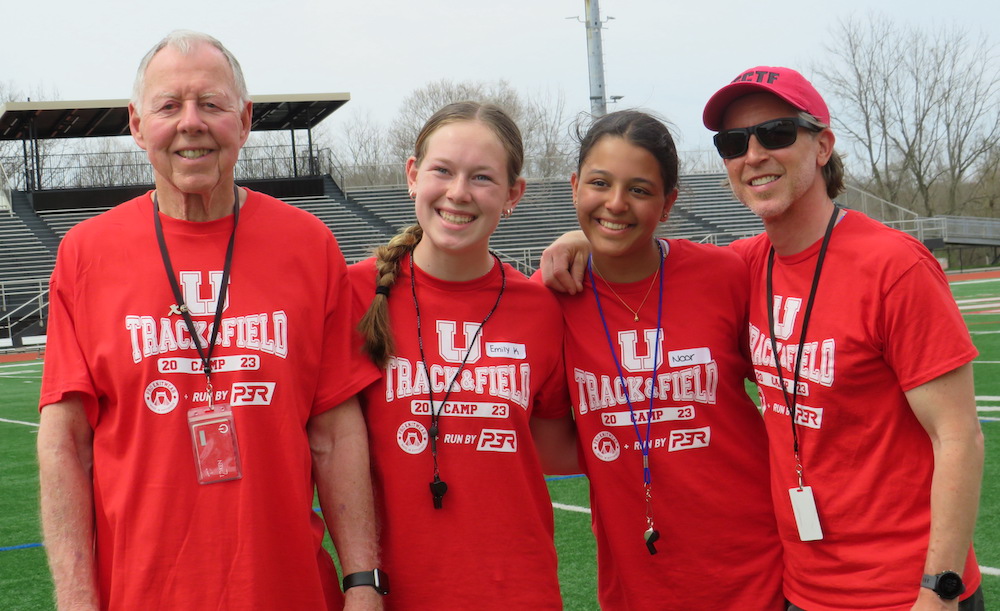
Even the smallest kids had a great time: The kindergarteners “were such good listeners,” Powell says. “They had so much fun. And we got so many parent emails that were like, ‘My child loved your camp. They had so much fun this week over spring break when they normally would be bored staying at home.’”
Several parents even asked for advice on helping their kids to continue learning about running, Powell says, “and so we’re helping people with that.”

